TLDR
- Nvidia has rebounded from a 30% drop due to tariff concerns, with Q1 revenue surging 69% to $44 billion and forward P/E ratio falling to 33 times
- Apple stock is down 20% this year due to iPhone manufacturing and tariff uncertainties, but represents a buying opportunity
- Amazon declined 3% for the year but has restructured costs and AWS reached $117 billion annual revenue run rate from AI growth
- Meta CEO Mark Zuckerberg is paying $100 million bonus packages to recruit top AI talent from competitors
- ASML holds a monopoly on extreme ultraviolet lithography machines needed for advanced AI chips, with a 10-year technology lead
Three major AI stocks are positioned for growth in the second half of 2025 after weathering recent market volatility caused by trade policy concerns.
Nvidia experienced a sharp decline of nearly 30% from the start of the year through early April. The drop came after President Trump’s tariff plans created uncertainty for technology companies. However, the chip giant has since recovered as tariff fears eased and the company demonstrated strong financial performance.
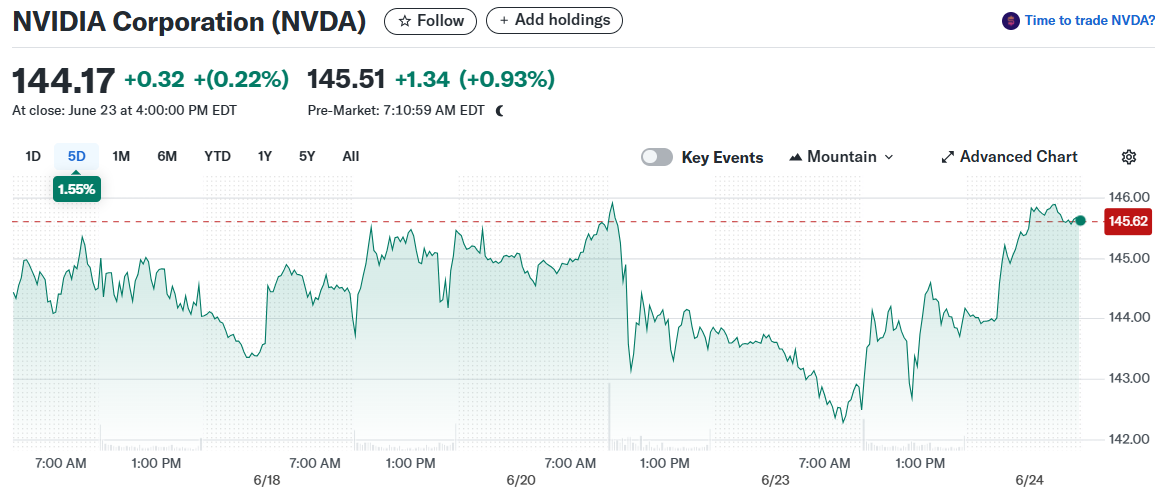
The company reported first-quarter revenue of $44 billion, representing a 69% increase from the previous year. Customer demand remained robust, with clients indicating their spending plans for AI infrastructure remain unchanged. Nvidia’s forward price-to-earnings ratio has dropped to 33 times, down from approximately 50 times earlier in the year.
Nvidia is investing in U.S. manufacturing capabilities to reduce potential tariff impacts. The company maintains its annual chip update schedule, which helps maintain its competitive advantage. Beyond traditional GPU sales, Nvidia is expanding into robotics, autonomous vehicles, and AI systems development.
Apple faces the steepest challenges among major technology stocks. The company’s stock declined 20% since the beginning of the year due to manufacturing concerns. President Trump threatened a 25% tariff on imported iPhones, criticizing Apple for producing most devices overseas.
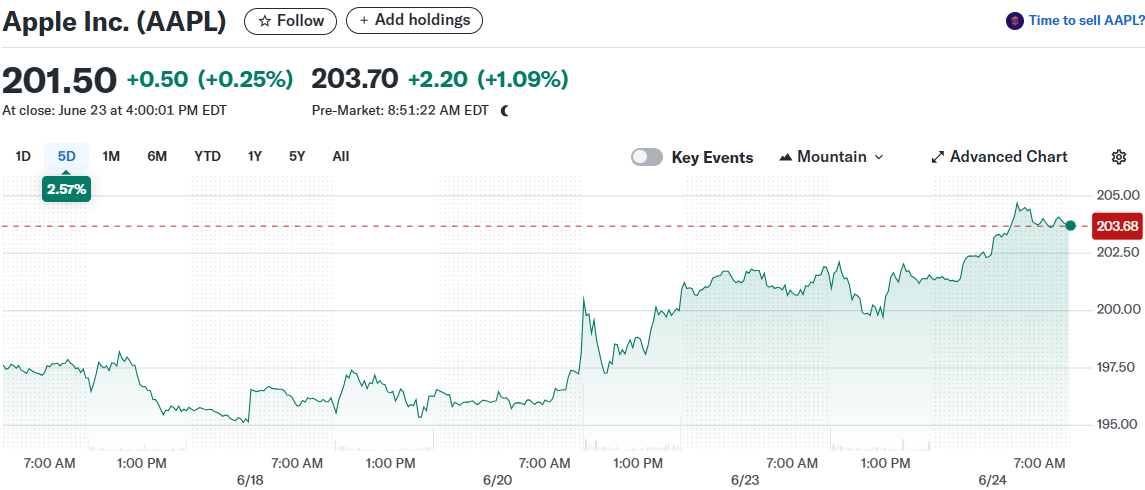
Manufacturing Shift Creates Uncertainty
The iPhone maker is working to diversify production away from China toward India. However, moving production to the United States could increase smartphone prices substantially. Despite current challenges, Apple maintains strong brand loyalty and profitable operations that provide long-term competitive advantages.
Amazon declined 3% for the year as investors worried about tariff impacts on e-commerce and cloud computing operations. The company has restructured its cost base following inflation pressures, positioning it better for future challenges. Amazon Web Services reached a $117 billion annual revenue run rate driven by AI demand.
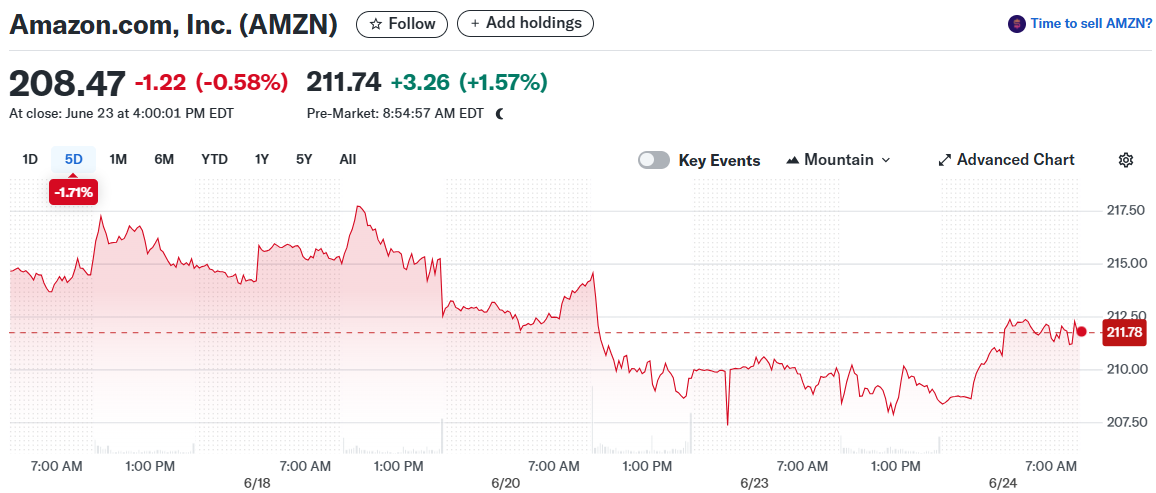
The company operates 750,000 robots in fulfillment centers and plans to deploy next-generation AI-powered robots. These systems could reduce fulfillment costs by 50% within five years through improved efficiency and reduced workplace injuries. Amazon’s operating margins could expand from 11.8% toward higher levels as automation investments pay off.
Meta Platforms demonstrates the intensity of AI competition through CEO Mark Zuckerberg’s recruitment efforts. He is personally paying $100 million in bonus packages to attract top AI researchers from competitors. Zuckerberg sends WhatsApp messages to hundreds of researchers and hosts them at his homes to close deals.
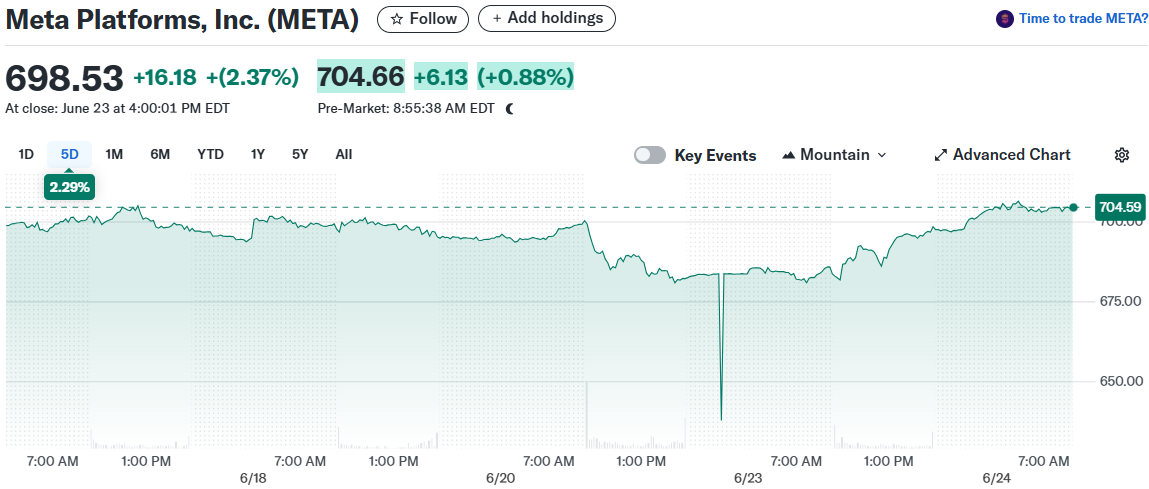
Infrastructure Companies Benefit
Meta is combining AI development with metaverse technology to create virtual worlds, photorealistic avatars, and real-time translation capabilities. Industry analysts estimate the AI-powered metaverse could become a multi-trillion dollar market by 2035.
ASML holds a critical position in AI chip manufacturing through its monopoly on extreme ultraviolet lithography machines. These machines are required to produce the nanoscale transistors used in advanced AI chips. Every major chip manufacturer, including Nvidia, AMD, and Intel, depends on ASML’s technology.
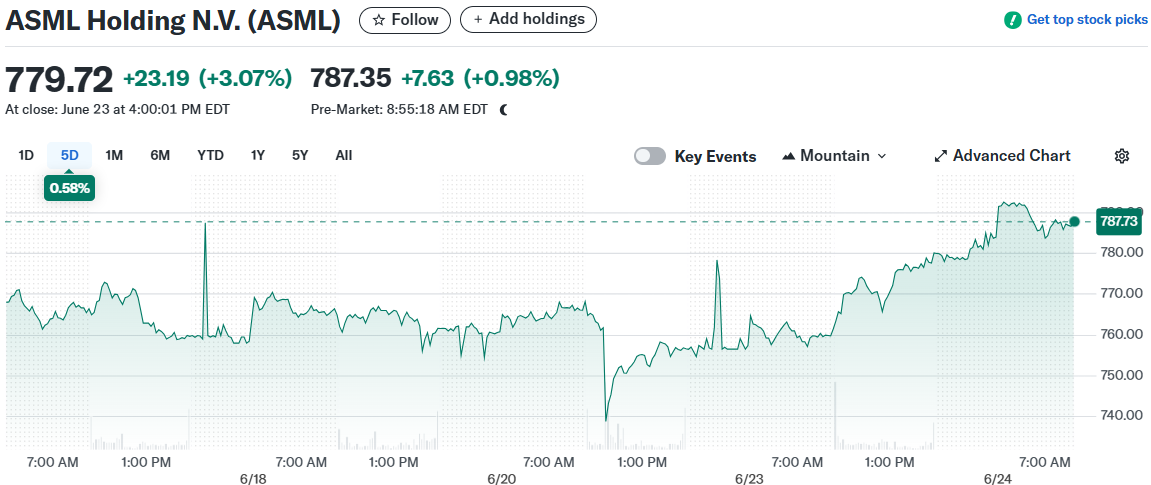
The Dutch company maintains a 10-year technological lead over competitors and operates with a multi-billion euro backlog. This position gives ASML control over AI hardware production capabilities across the industry.
S&P Global provides essential data infrastructure for AI development in financial markets. The company’s 160 years of market data feeds AI trading systems through its Microsoft Copilot integration. As investment firms build AI-powered trading platforms, S&P Global collects revenue regardless of which companies succeed.
Technology companies are spending unprecedented amounts on AI development, indicating this represents a fundamental shift rather than speculative investment. Amazon trades at 34 times forward earnings, while Nvidia’s valuation has become more reasonable after recent corrections.
AWS maintains its position as the world’s leading cloud service provider, benefiting from continued AI infrastructure demand. The company’s cost restructuring efforts have improved profitability and operational efficiency during challenging market conditions.






